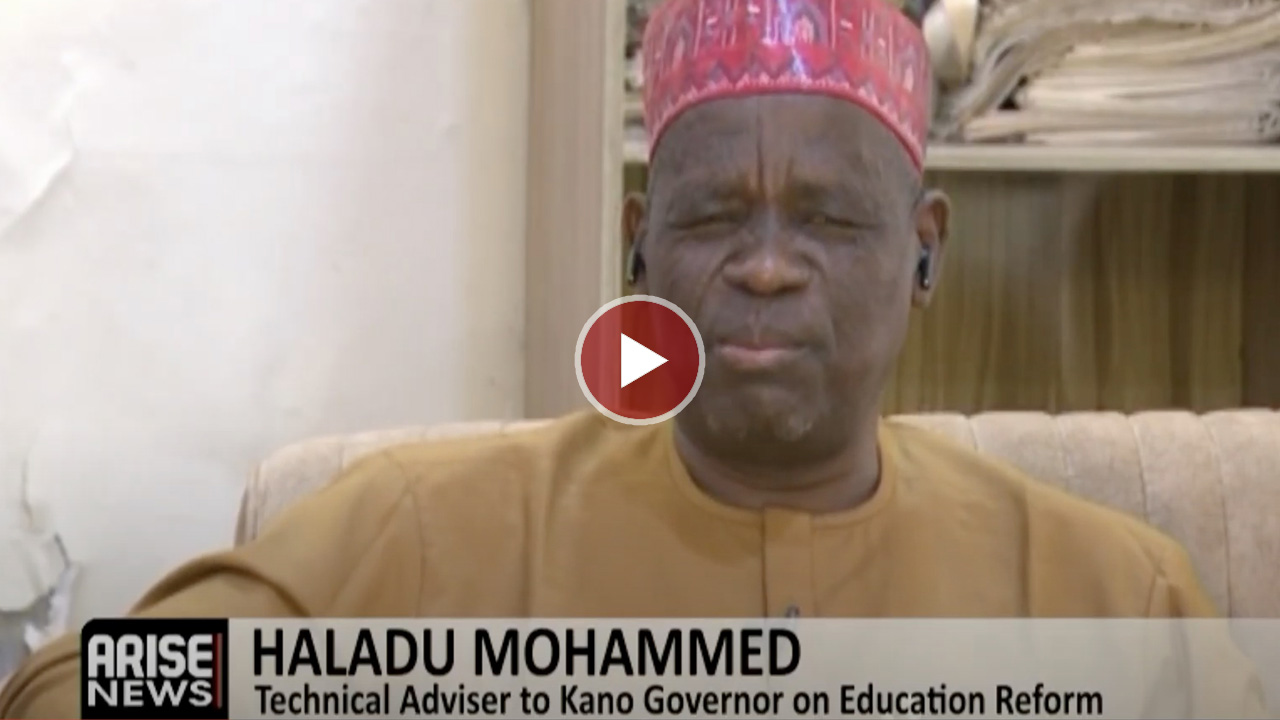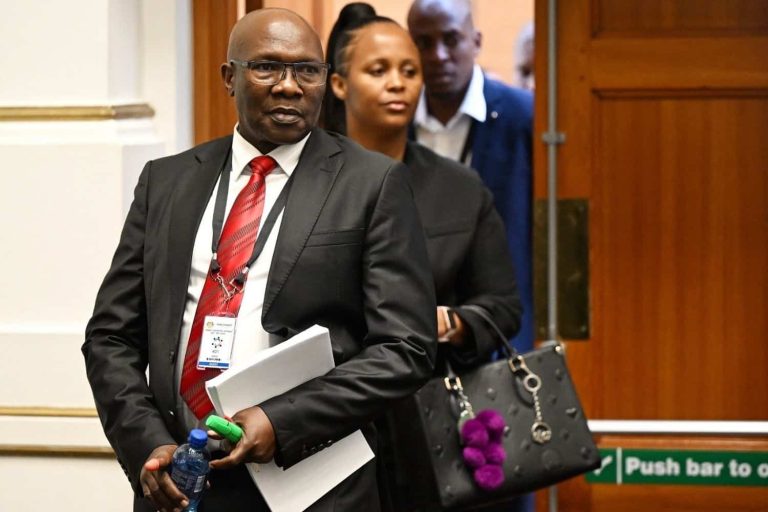

Haladu Muhammed, Technical Adviser to Kano Governor on Education Reform, has disclosed that Kano State is set to launch sweeping reforms in the education sector, including a massive intervention to address nearly one million out-of-school children and the integration of artificial intelligence into schools.
Speaking on ARISE News on Friday, Muhammed explained that the success so far recorded in the sector was the result of deliberate reforms initiated by Governor Abba Yusuf, who he described as prioritising education above all else.
Muhammed addressed the challenge of out-of-school children, which remains one of the biggest concerns in the state. “Yes, we have that baggage. And you know, once you are born into a family, you immediately inherit the characteristic of that family. We came and found a lot of out-of-school children, almost a million, like you mentioned.”
Addressing the role of technology, he revealed that Kano is on the verge of adopting artificial intelligence in schools. “We are almost ready for AI completely. We have right now pilot schools where we are piloting digitization. Students are learning through tablets. Teachers are teaching with curriculum and other teaching materials embedded in technology.
The entire school system, the classroom, is being made to respond to technology as quickly as possible. We are piloting technology very seriously. So very soon, I believe, when our reform is complete, every aspect of delivery, every aspect of monitoring and tracking, even in terms of the materials we use to learn or to teach, will all be digitally compliant. So AI, welcome to Kano.”
According to him, “How did it come about? It is a product of hard work. It’s not just happening. In reform, you and I know that in reforming any system, the first thing you do is to change the mindset. When you change the mindset of the people, a lot happens in no time.”
He said the governor made education the top priority from the outset. “He made it very well known to his cabinet, to the people of Kano, that education is number one. Education is number two. And education is number three. His body language, his spoken words, his allocations in the budget, everything speaks education.”
Muhammed highlighted the recruitment of teachers as one of the bold steps taken to strengthen the system. “He immediately ordered for the recruitment of 5,600 teachers. In 2023, that year, 2024 came, he injected another 5,000 teachers in the system. Just yesterday, as your report just showed, he is injecting another over 4,000 teachers into that system. In the span of two years, close to 15,000 teachers have been injected into that system. It’s unprecedented.”
He noted that the teacher recruitment drive was accompanied by intensive training programmes. “This is also accompanied with massive teacher training to make sure our teachers are brought up to date. Teacher training, retraining, in-service, everything is going on in our ministries. It was massive, it was intensive.”
On sustainability, Muhammed stressed that the reforms were not temporary measures but deeply institutionalised. “Is this sustainable? Yes, it is. Because our reform is not just doing those things on the fly, or just on the symptoms. No. Every step we are taking is institutionalized. We are seriously reorganizing how education is managed in the state. We are moving to the 21st century quickly. We are digitizing our process. Learning is being digitized. So it’s a total change in the management, a total change in the structure, a total change in infrastructure, a total change in mindset.”
He revealed that a comprehensive strategy was underway to capture and reintegrate them. “The government established a very powerful committee that will come out with strategies to tackle this. I am privileged to be chairing that committee. So what that committee is doing currently is, first of all, knowing this out-of-school. Data is an issue, I’m sure you know. Yes, we have almost a million, but who are they? Where are they? What are their characteristics?”
According to him, “Currently, we have over 300 piloting learning centers around that deal with out-of-school children issues. We are applying the accelerated basic education program for the over-aged among them. We are currently campaigning vigorously for those of the right school age among them to actually enroll them in normal schooling.
Next year, wait for us. There will be a massive intervention in out-of-school children in Kano, across the 44 local governments we have. We’ll have accelerated learning centers in every local government, probably in every ward. We will enroll, we will provide learning materials. We will try to morph out as much as possible, every street child we have, every out-of-school child we have, to make sure, as quickly as possible. Probably, you will not hear of that phenomenon in Kano again.”
When asked about the role of previous administrations in laying the groundwork for education reform, Muhammed acknowledged their efforts but credited the real foundation to the Kwankwaso administration. “Actually, it even started before then. When you talk of massive enrollment, you talk of school feeding, in Kano, the phenomenon actually started with the Konkoso administration. He brought that.”
He however noted setbacks in subsequent administrations. “During their time, even that school feeding program of Kwankwaso was stopped. Many boarding schools were closed, and so on. I will not diminish that. But I will tell you, education is a continuum. You start a new curriculum now, it takes the next 15 years to mature. So if you talk about that, the real foundation was actually laid during the first Kwankwaso administration.”
Using a football analogy to drive home his point, he said: “When you see a number 10 jersey on a soccer field, dribbling out all the powerful defenders in front of him, and taking that ball into the net, probably it came as a pass from the midfield, or it was kicked from the goalkeeper on the opposite side. But let me tell you, whether it came from the midfield, or whether you have that visionary, powerful, skillful number 10, which I can characterize Governor Aba as, you will not score that goal. So not minimizing how that contribution happened, but you cannot also remove the fact that a quick and impactful reform has happened, which results into the kind of results we are seeing.”
Faridah Abdulkadiri



